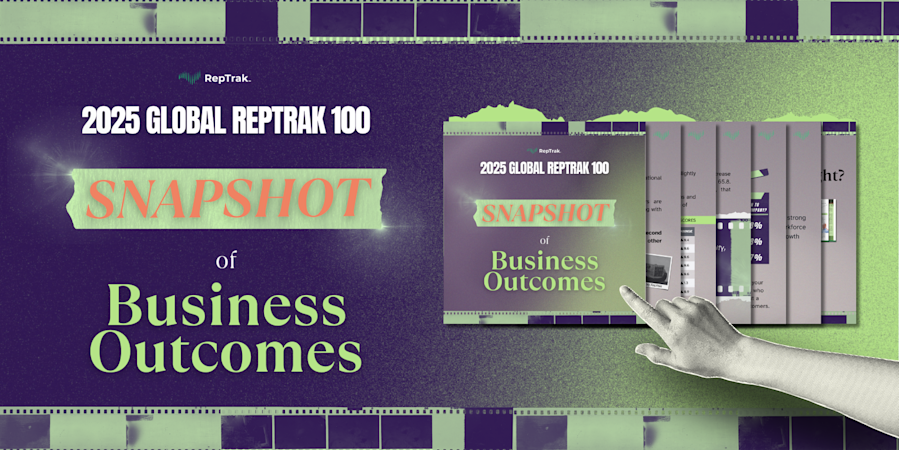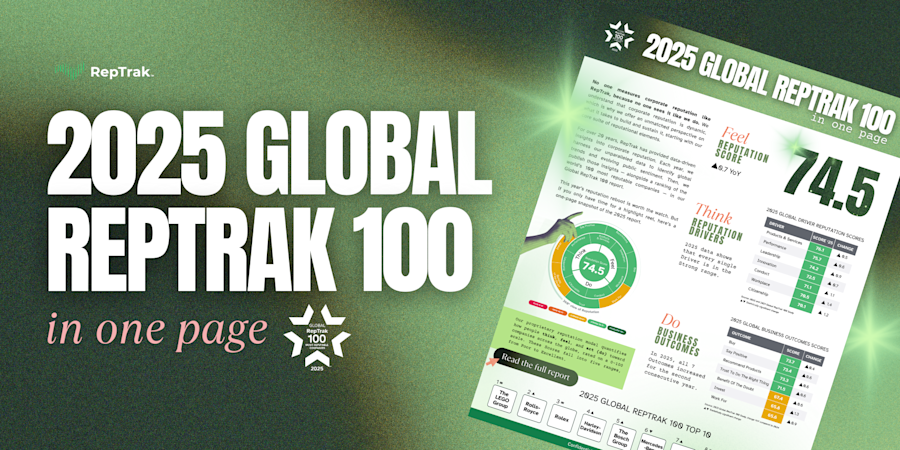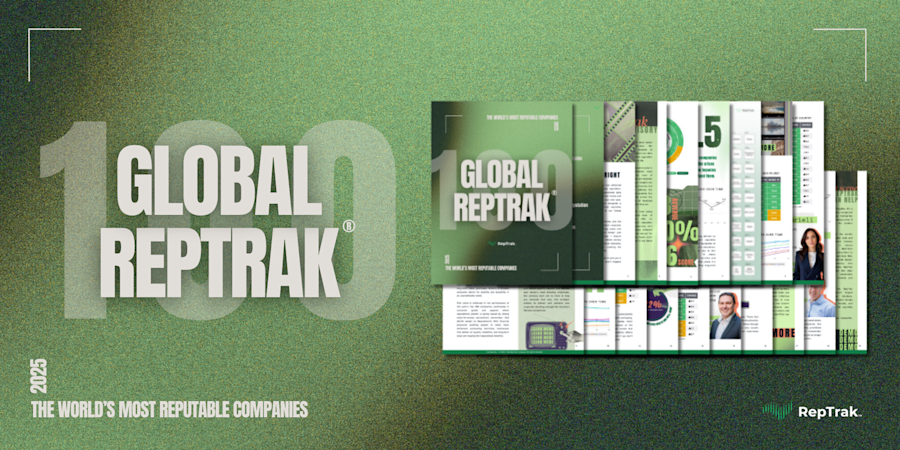6 Great Movies for Reputation Leaders to Watch in 2020
Blog Post04 Feb, 2020
Sometimes, important lessons about reputation and how to build and retain one through responsible practices can be found in the most unexpected of places. The movies, for example.
In fact, there are dozens of movies, both new and old, that can teach business leaders about responsibility toward stakeholders, investment in people and the environment, and the authenticity of your message.
So grab your popcorn and your notebook, because it’s time to learn a thing or two from these six films.
1. The Two Popes (2019)
The Two Popes was nominated for multiple Oscars in 2020, including Best Actor (Jonathan Pryce), Best Supporting Actor (Anthony Hopkins), and Best Adapted Screenplay.
While the film showcases fictional conversations between Pope Benedict XVI and Cardinal Jorge Bergoglio, who would become Pope Francis, it takes place in 2012, when the Catholic Church was caught up in a very real corruption scandal for which Pope Benedict took much of the blame. In the film, Cardinal Bergoglio, one of Benedict’s harshest critics, is recovering from his own reputational crisis after collaborating with the military dictatorship in his home country of Argentina.
The men discuss the future of the Church, which has suffered a number of reputational black eyes. In the end, the more traditional Benedict resigns the papacy and Bergoglio, the progressive, becomes Pope.
This story is a parable for business leaders. Like Benedict, CEOs are often caught up in scandals that mar their companies’ reputations. Benedict understood that it was time to step down and to do damage control.
He also understood that Catholics around the world wanted to see a more progressive church, something he could not provide.
The moral of this story? Showing contrition and giving your stakeholders what they want will go a long way toward repairing and sustaining your reputation.
2. It’s a Wonderful Life (1946)
When you think about this movie, you probably think about Christmas time, miracles, and redemption. But this holiday classic is also about a businessman so committed to his community that he gives up his own dreams to see his town prosper.
George Bailey wants to get rich and see the world. But even at a young age, he puts the needs of his family and friends before his own, sometimes risking his own life to do so. When his father dies, George takes over the family’s Savings and Loan bank. He spends the rest of his life fighting for the people of Bedford Falls and fighting off bankruptcy.
When the Savings and Loan finally goes under and George sees the success of his peers, he wishes he had never been born. But an angel named Clarence shows him how many lives he has changed by being alive.
The devotion George shows to the community he serves is rewarded when the people he helped throughout the years come to the rescue of the Savings and Loan.
In the end, George’s commitment to his community was an investment in real lives, as well as an investment in his own company—and a good reminder that saying and doing the right things is good business.
3. Office Space (1999)
Peter Gibbons works for Initech, a software company that embodies every cliché about 1990s corporate America. The company is located in a drab office park surrounded by chain restaurants. Peter and his friends sit in their gray cubicles, tapping away at their computers while upper management focuses on unimportant details like cover sheets for TPS reports.
When Peter and his coworkers find out they’re all going to be downsized, they plot revenge on their company.
Office Space is most definitely a comedy, but it’s not without its poignant moments—including when Peter meets with downsizing consultants and tells them, “The problem is motivation. If I work [hard] and Initech ships a few more units, I don’t see a dime. And the thing is, I have eight different bosses right now. So that means that when I make a mistake, I have eight different people coming by to tell me about it."
The message is clear: Initech employees are disenfranchised. They are not invested in the company because the company is not invested in them.
Peter confesses that he only does 15 minutes of real work every week. Fear of losing a job “will only make someone work just hard enough not to get fired,” he says.
While Office Space presents an extreme example, think about how much good investing in company culture can do to boost productivity at your company. Having a reputation for investing in your employees (financially and emotionally) will attract great talent.
4. Jerry Maguire (1996)
When sports agent Jerry Maguire realizes his employer is putting the bottom line before the welfare of its athletes, he writes a memo to the entire agency suggesting they look at their clients as humans rather than money makers.
He’s fired for that. So, he decides to build his own agency, even though he only has one client and one employee. It’s his commitment to make sports agents more human that matters.
When it comes to corporate priorities, this movie was ahead of its time. In just the last year, the Business Roundtable declared stakeholders rather than shareholders the new focus for business. They know, just like Jerry did, that to build successful businesses, you need to treat customers and employees like people, not like statistics.
That philosophy worked for Jerry, and it’s working for many companies today, too.
5. American Factory (2019)
Nominated for Best Documentary Feature in 2020, American Factory examines what happens when a Chinese glass manufacturing company buys a former GM plant in Moraine, Ohio, to build windshields. At first, the struggling town is elated at the plant’s opening and promise of an additional 2,000 jobs. But workers and management from both countries soon clash over unions, workplace regulations, and general company culture.
As film critic David Fear of Rolling Stone wrote, “American Factory sets out to chart what’s supposed to be a test run for the future of the auto industry and an example of positive international relations. Instead, it captures a cross-cultural car wreck in slow motion.”
The film’s lesson is an important one for large and global corporations: Compliance aside, if you’re expanding to a new country, or even just a new region, it’s important to understand cultural norms and set employee expectations up front.
Again, by developing a good company culture, you’re helping to build a good employer reputation.
6. The Lion King (1994 and 2019)
Finally, The Lion King contains a wonderful cautionary tale for business leaders. After Scar kills his brother and drives away his nephew, the film's antagonist takes over the Pride Lands, which he runs as his own personal fiefdom. Scar’s management style is best summed up by his line to former queen Sarabi: “I’m the king. I can do whatever I want.”
But there's a price to such audacity: Soon, the Pride Lands whither as the other animals leave, the rivers dry up, and the vegetation dies.
When Simba returns to claim his rightful throne, the other lions turn on Scar immediately, and then celebrate when Simba wins the final battle. With Simba now at the top of the food chain, everyone is included and contributing to the vibrant ecosystem, and the circle of life is restored.
The lesson here is pretty obvious. Run your business like a dictatorship and you will lose all credibility with your stakeholders. Act like a true leader who cultivates an inclusive culture and you will earn the team's support.
Action!
So there you have it, six movies that all reputation leaders should see. Screen these films at your next leadership meeting. A lively discussion is guaranteed.
Martin Lieberman Director, Content Marketing The RepTrak Company [email protected]





